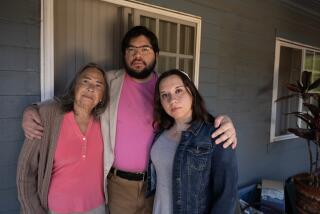L.A. City College swap meet shuts down after more than two decades
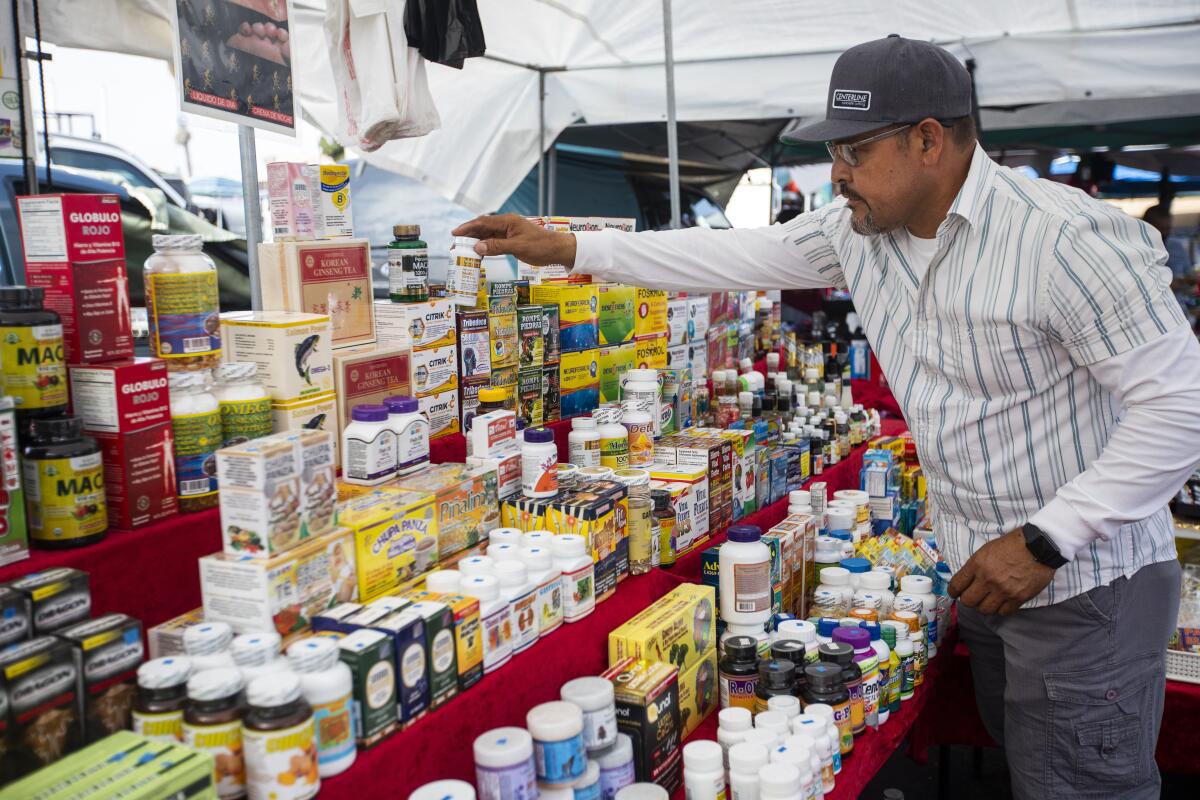
- Share via
Rosa Sanchez entered the Los Angeles City College swap meet with a $20 bill on a Sunday last month.
She emerged with grapes, strawberries, cherries, a gray sweater, toothpaste, a 16-pack of AA batteries — and $6 in change.
Now, she will have to hunt for bargains elsewhere.
The weekend swap meet, which has occupied a parking lot on the community college campus in East Hollywood for more than 20 years, opened for the last time Sunday.
“When the community loses these important places, we all lose,” said Sanchez, 59, a housekeeper who lives nearby.
Like other swap meets, the one at L.A. City College closed at the start of the COVID-19 pandemic last year. It reopened more than a year later, in April.
The San Fernando, Paramount and Vineland swap meets are among those that are now open. The swap meet at Los Angeles Harbor College started up again on the Fourth of July.
But at L.A. City College, the pandemic losses were too steep to overcome. Competition from vendors who set up on the sidewalk was the final straw, said Greg Danz, president and chief executive of Newport Diversified, which runs the swap meet.
“It’s very disappointing that this business is closing, and we’re not happy,” he said.
Vendors, both in the market and on the sidewalk outside, say the fees that Newport charged for a stall were exorbitant.
Juan Carlos Perez, who has sold secondhand clothing and electronics at the swap meet for 20 years, said he paid $2,000 for a prominent, high-traffic spot, on top of monthly reservation fees of $110 and daily vending fees of $100.
Perez, 49, a FedEx driver who moved to L.A. from El Salvador in 1986, relies on the extra income to pay bills.
He now has three or four months’ worth of merchandise stacked up at home and no idea where he will sell it.
Vendors said they received only a week’s notice of the closure, which was first reported by the Eastsider.
“If I knew they were going to stop, I wouldn’t have paid $2,000,” Perez said. “I can’t afford to give away that money.”
Danz said his company charged the 140 or so vendors only daily and monthly fees, not thousands of dollars for a space.
The Los Angeles City College Foundation owns the site and will look for a new operator, Executive Director Robert Schwartz said.
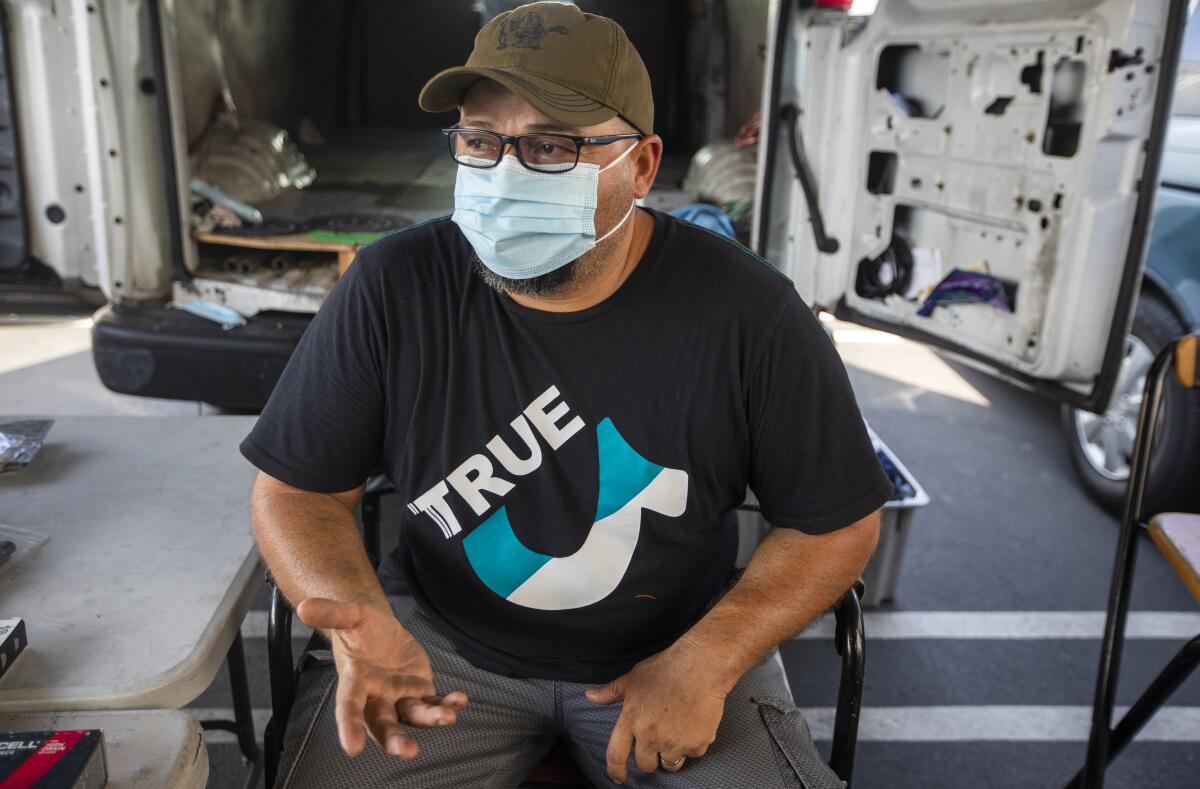
The foundation, which gets 35% of the swap meet’s proceeds, with the rest going to Newport, lost more than $650,000 in revenue during the pandemic shutdown, Schwartz said.
The money typically goes to the foundation’s operating costs and to student scholarships, including the Guardian Scholars Program, which helps foster youth with tuition, meals and tutoring.
In the last year, reserve funds were used to pay for the scholars program, which includes about 140 students.
In the months since the swap meet reopened, revenue has been down by more than half, with the foundation taking in about $18,000 a month, compared with the usual $55,000.
Vendors were not charged any fees for the first month of reopening in April, Schwartz said. In July, about 80% of stalls were booked.
Like Danz, Schwartz accused street vendors of hastening the swap meet’s demise.
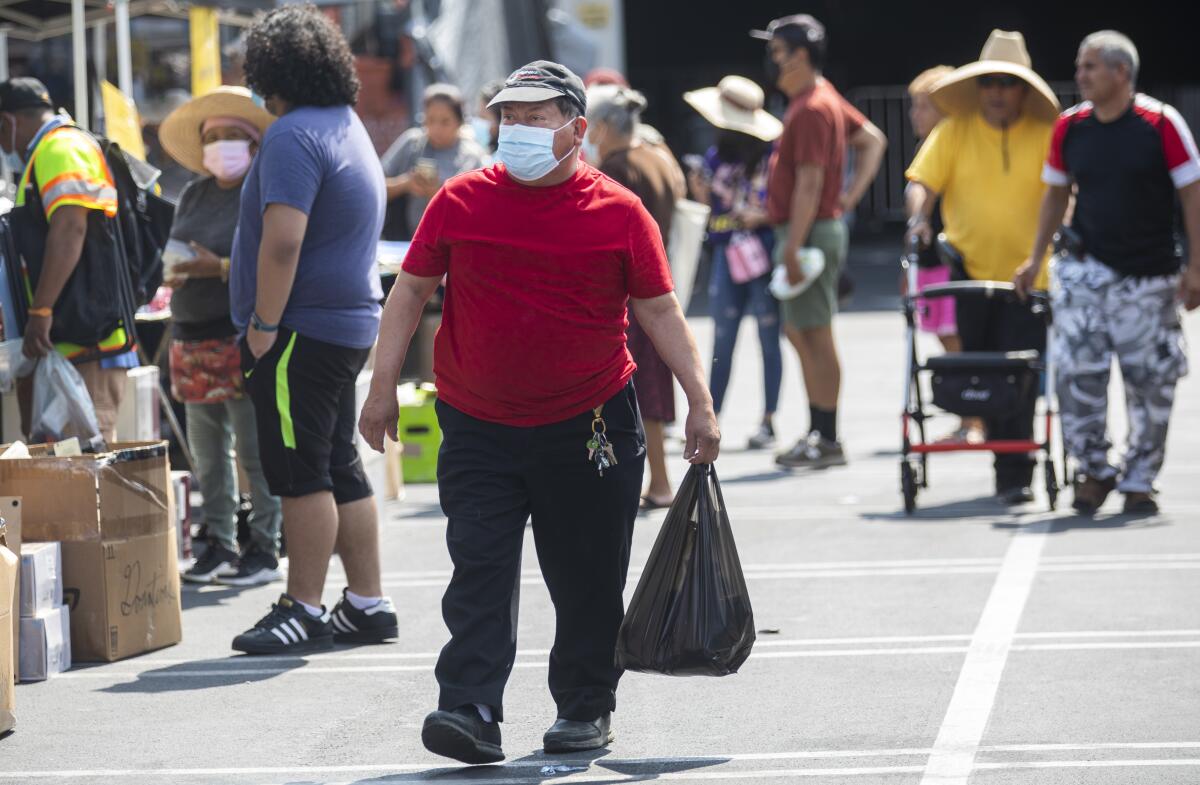
During the pandemic shutdown, about 100 vendors set up on North Vermont Avenue and a few side streets, Schwartz said.
Once the swap meet reopened, some paid the fees and moved back inside. But, according to Schwartz, about 45 to 55 remained on the sidewalk.
Javier Sanchez was among those who moved his stall onto the sidewalk when the swap meet closed.
Since the reopening, he has sold secondhand jeans, khakis, shirts, blouses and fluorescent safety vests inside the swap meet while also maintaining his sidewalk stall.
Sanchez, 56, is an immigrant from Mexico who has sold at the swap meet for more than 20 years. Since 2015, it has been his only source of income. He said he will continue operating a stall on the sidewalk.
Blaming street vendors for the market’s closure is misguided, he said.
“We’re all trying to survive, and we received only one month’s help,” he said of the April break on swap meet fees. “It makes sense to sell outside and not pay all the extra fees.”
Danz said he has been working with Los Angeles City Councilman Mitch O’Farrell’s office to enforce regulations that prohibit street vendors from setting up within 500 feet of a swap meet.
Dan Halden, a spokesman for O’Farrell, said he believes officials from the L.A. Bureau of Street Services have warned vendors that they cannot do business there. But Danz said there has not been any enforcement.
East Hollywood Neighborhood Council President Ninoska Suarez said the street vendors have left trash behind and made it hard to navigate the sidewalk.
But she also understands their financial predicament.
“They need to make a living, and that’s been more difficult during COVID-19,” she said.
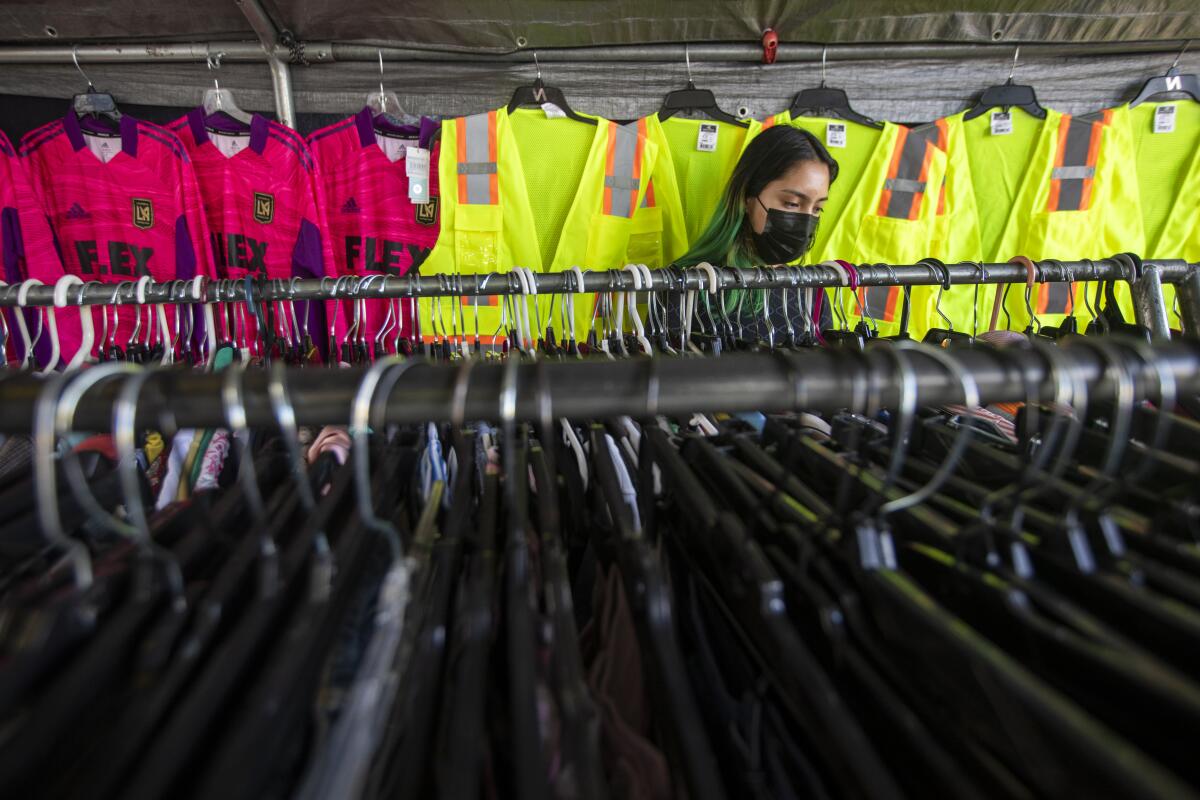
She said she will miss the market, which was a place to get cheap necessities for low-income residents who, like the vendors, have been hit hard by the pandemic. Her father shopped there weekly.
“COVID-19 has been devastating to East Hollywood, and now this happens,” she said. “A lot of people are trying to get back on their feet, survive, and this makes things worse.”
More to Read
Sign up for Essential California
The most important California stories and recommendations in your inbox every morning.
You may occasionally receive promotional content from the Los Angeles Times.



